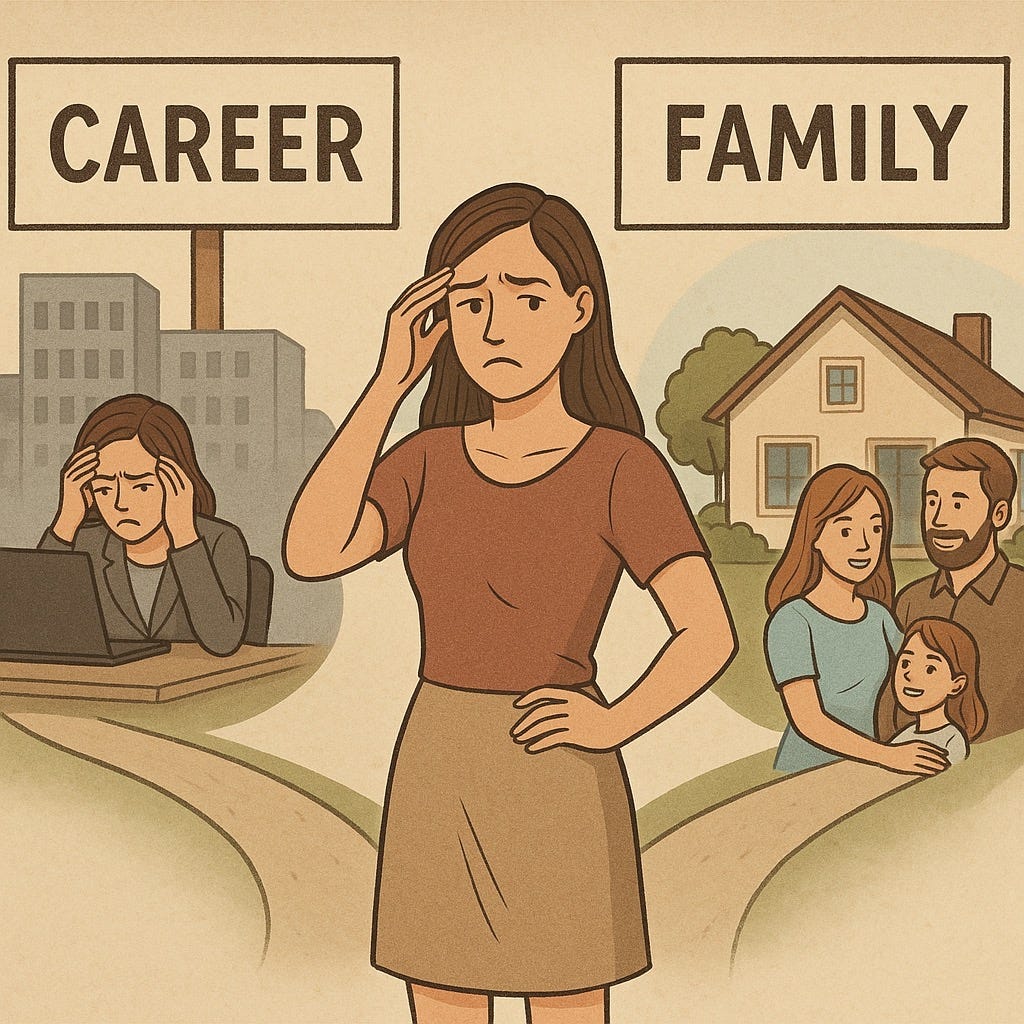How Post-First Wave Feminism, Marxism, and Eugenics Reshaped Womanhood
“Merely external emancipation has made of the modern woman an artificial being. Now, woman is confronted with the necessity of emancipating herself from emancipation, if she really desires to be free.”
- Emma Goldman
The Hidden Cost of ‘Liberation’
While First Wave feminism was a historic victory, securing women’s suffrage and legal human rights, what followed was not simply about expanding choice: It was a cultural reprogramming. Women were not only encouraged to pursue careers, education, and independence: they were indoctrinated to view traditional femininity itself as an obstacle, even a shameful relic. This shift, influenced heavily by Marxist and eugenic ideas, has created generations of women who feel guilty for pursuing what comes naturally: nurturing, creating families, valuing softness, or desiring romantic connection.
Rather than setting women free, post-First Wave feminism normalized the belief that women must become like men to matter. And both women and men have been paying the price ever since.
Marxism, Eugenics, and the Redefinition of Womanhood
Post-First Wave feminism was steeped in Marxist theory. Friedrich Engels, in The Origin of the Family, declared that the traditional nuclear family was the first site of class oppression, with women serving as the oppressed class. Later feminist theorists extended this logic, positioning marriage, motherhood, and domesticity as capitalist traps rather than organic human roles.
This coincided with the eugenics movement, which further warped how feminists thought about women’s biological functions. Figures like Margaret Sanger and Marie Stopes promoted birth control, not only as a tool of liberation but as a way to ‘improve’ humanity. Sanger famously referred to the poor as ‘human weeds,’ framing uncontrolled reproduction as a social danger rather than a gift of life. Reproduction was increasingly seen, not as the heart of womanhood, but as a problem to be solved. Ironically, post-First Wave feminism treats femininity like a birth defect, unless, of course, it’s a man pretending to be a woman, then it’s suddenly empowering.
Together, these influences planted the seed of an ideology that regarded motherhood, family loyalty, softness, and tenderness as marks of internalized oppression and weakness. The goal was no longer merely equality in opportunity, it became the masculinization of women and the erasure of natural feminine instincts.
Teaching Girls to Be Ashamed of Being Girls
From the 1960s and onward, post-First Wave feminist messaging shaped the upbringing of millions of impressionable girls. Young women were told to strive for academic and career achievement above all else, to postpone or devalue motherhood, and to suppress natural desires for love, nurturing, and interdependence. Traditional feminine traits: grace, softness, emotionality, even the desire to marry and have children, were no longer seen as neutral or positive. They were liabilities.
Girls began to internalize this. Shame crept into every corner: shame for enjoying traditionally feminine hobbies, for wanting children young, for craving security and relational intimacy instead of pure ball-breaking independence in the concrete corporate jungle. They were subtly warned: if you act too feminine, you are weak, if you desire family life, you are unambitious, not a team player, and an enormous disappointment to your corporate masters.
Yet the path they were pushed onto (careerism and masculine influenced independence) often left women conflicted. The biological and emotional realities they carried could not be erased by theory. Many found themselves exhausted by career focused lives, but too ashamed to admit they desired marriage or children for fear of appearing weak or ‘regressive.’ Feminism had not liberated women: it had confused women instead.
The Collapse of Natural Male-Female Polarity
The cost of this reprogramming is not just internal to women: it has spilled over into dating, marriage, and male-female trust.
By encouraging women to suppress their femininity and men to question their masculinity, society dismantled the natural polarity that once sparked attraction. Where women were once encouraged to be open, receptive, and warm, and men to be bold, protective, and providing, both now enter social spaces unsure of their roles. Men second guess every interaction, fearing accusations or rejection. Women, taught to distrust men’s intentions and to view their own need for male companionship as weakness, approach relationships cautiously and cynically.
The result is a relational cold war. Women complain that men no longer approach them. Men retreat, confused and frustrated, unsure if masculine pursuit is predatory or desired. Dating becomes a minefield where attraction is criminalized, and mutual suspicion has replaced mutual admiration.
Online culture makes it worse. Men are increasingly coached by so called dating gurus who sell resentment disguised as strategy. Women, shaped by trauma or ideology, sometimes view men primarily as threats or competitors. Neither side is able to authentically trust or admire the other.
The Reproductive Crisis: A Symptom of Cultural Breakdown
This confusion has material consequences. Birth rates across the Western world have plummeted. Marriage is increasingly delayed or avoided. Many women, having postponed family in favor of career and personal ‘freedom,’ find themselves racing against biology later, often too late. Men, feeling disrespected or unwanted, withdraw from serious commitment. Both suffer in silence.
The irony is sharp: in trying to create equality by making women more like men, the culture severed the vital, complementary relationship between the sexes. Neither men nor women seem to know what they are supposed to be anymore, and resentment simmers on both sides.
Is it any wonder that people increasingly avoid dating altogether? Fear, distrust, and cynicism have replaced curiosity, playfulness, and admiration. The very things that make love, marriage, and family possible: trust, polarity, complementarity, have been destabilized.
Toward Healing: A Call for Authenticity
We cannot solve this problem by returning wholesale to the past, nor should we. The legal and civic gains of First Wave feminism were real and necessary. But artificial equalization (the denial of natural differences) has been a social disaster. It has forced men and women into roles that feel like costumes, not expressions of self. What results is not liberation, but alienation from ourselves and from each other.
To move forward, we must allow women to reclaim femininity without shame and men to reclaim masculinity without fear. And by ‘masculinity’, I don’t mean the manufactured, showy and fake masculinity. The biological masculinity that is organically the perfect balance of confidence, strength and softness. Biological instincts toward family, love, and relational intimacy are not signs of weakness, but essential human traits. We must also recognize that both men and women are victims of this ideological confusion.
Rebuilding trust starts when we stop holding each other accountable for the crimes or mistakes of others. We must stop pretending that attraction is toxic, that motherhood is oppression, that masculinity is dangerous, or that love is inherently suspect. We must acknowledge the hurt on both sides and allow ourselves to be vulnerable again. This is the only way to restore what was lost: the possibility of men and women seeing, trusting, and loving each other, not as adversaries, but as partners. Reject the social narratives and constructs. The purpose of that programming is to destroy all that is sacred and beautiful about human differences and all the ways we connect.
Thank you so much for being here and reading Organarchy!




